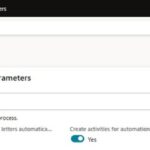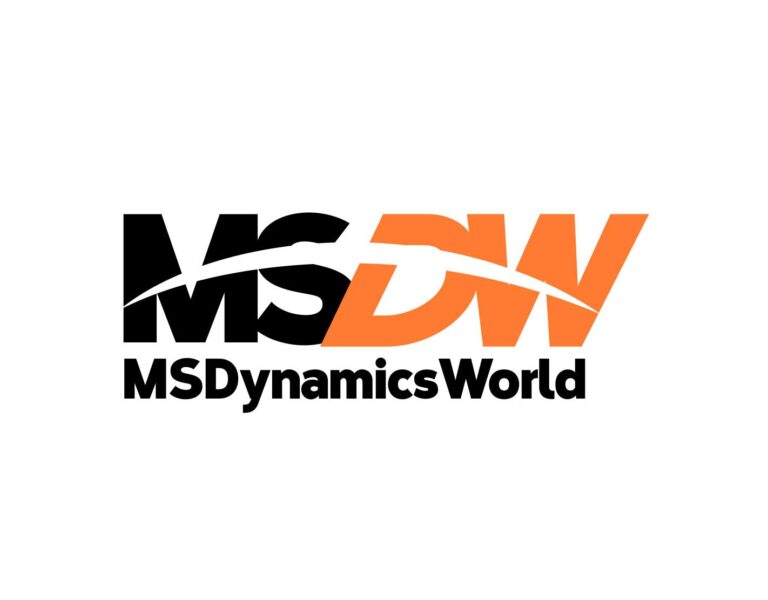Data quality is critical for businesses using Salesforce, the world’s leading Customer Relationship Management (CRM) platform. According to a Gartner report, poor data quality costs organizations an average of $12.9 million per year. Whether you are managing customer information, sales leads, or product data, maintaining clean, accurate, and up-to-date data in Salesforce is essential for decision-making, customer satisfaction, and operational efficiency.
However, as businesses scale and more data is collected, ensuring that the records in Salesforce remain accurate and reliable becomes increasingly challenging. In this article, we will cover best practices and tools to improve data quality in Salesforce, ensuring your organization’s CRM stays organized, efficient, and error-free.
Why Data Quality Matters in Salesforce
Inaccurate data can severely impact your organization’s ability to provide excellent customer service, make informed decisions, and optimize sales and marketing efforts. In Salesforce, poor data quality can lead to several problems:
- Customer Satisfaction: Incorrect contact information or missed opportunities can frustrate customers and negatively impact relationships.
- Decision-Making: Business intelligence and reporting rely heavily on clean data. Inaccurate records can result in misleading insights.
- Compliance: Poor data management may lead to violations of regulations like GDPR or HIPAA, leading to fines and reputational damage.
- Operational Inefficiency: Data entry errors and duplicates cause redundant work and wasted time, reducing team productivity.
By improving the quality of your data in Salesforce, you enhance the accuracy of reports, optimize workflows, and improve customer interactions.
Key Best Practices for Improving Data Quality in Salesforce
The importance of data quality in Salesforce cannot be overstated, but how do you ensure that your records are accurate and trustworthy? Below are the best practices every business should implement to maintain high-quality data.
1. Implement Data Validation Rules
Salesforce provides robust data validation options to prevent incorrect data from entering the system. By setting up custom validation rules, you can enforce certain criteria for fields before allowing users to save records.
Key Benefits:
- Prevent Data Errors: Validation rules ensure only valid, complete data is entered.
- Consistency: Enforces uniform standards across your Salesforce instance.
- Increased Accuracy: Ensures that critical fields (like email addresses or phone numbers) are entered in the correct format.
How to Implement:
- Go to Setup → Search for Validation Rules → Create new rules for important fields such as email, phone number, or addresses.
- Define conditions to ensure data is entered correctly based on your business requirements.
For example, you can create a rule that validates email addresses to ensure that they contain an “@” symbol, or you can restrict certain fields from being left blank.
2. Use Data Enrichment Tools
Data enrichment refers to the process of enhancing your Salesforce data with additional information, usually from third-party sources. Enriching your records helps you maintain up-to-date, complete profiles, and ensures you are not missing out on valuable insights.
Key Benefits:
- Improved Customer Profiles: Data enrichment provides a more complete picture of your customers, including updated contact details and demographic information.
- Lead Scoring: Enrich your leads to ensure you are focusing on the most qualified prospects.
- Better Segmentation: With richer data, you can segment your customers more effectively and personalize your campaigns.
Recommended Tools:
- Salesforce Data.com: This tool provides enriched data, including company information, industry details, and social profiles.
- ZoomInfo: Another popular solution for enriching Salesforce with contact data and company insights.
3. Duplicate Management
Duplicate records are a common issue in Salesforce, especially as organizations grow and their databases accumulate. Duplicate records not only lead to inaccurate data but also confuse your sales and customer service teams, who may waste time engaging with the same customer multiple times.
Key Benefits:
- Improved Efficiency: Sales teams can focus on unique leads and opportunities without wasting time on duplicate records.
- Accurate Reporting: With fewer duplicates, reporting and analytics will be more reliable, providing insights into actual performance.
- Better User Experience: Customers won’t receive redundant communications, improving overall satisfaction.
How to Implement:
Salesforce has built-in tools for identifying and merging duplicates:
- Duplicate Management Rules: Create rules for when records should be flagged as duplicates based on predefined criteria (e.g., matching email or phone number).
- Matching Rules: Define fields that should be compared across records to identify potential duplicates.
- Merge Duplicates: Once duplicates are identified, Salesforce allows you to merge them with just a few clicks.
4. Regular Data Audits and Cleanups
Even with validation rules and duplicate management in place, it’s crucial to regularly audit and clean up your Salesforce data. Periodic reviews ensure that your records remain accurate and up-to-date over time.
Key Benefits:
- Identify Gaps: Audits help uncover missing or incomplete information that may affect decision-making.
- Improve Accuracy: Regular cleanups ensure that outdated records are deleted, and irrelevant data is removed.
- Regulatory Compliance: Ensures that your data management practices are in line with industry regulations and standards.
How to Implement:
- Schedule regular data audits—monthly, quarterly, or bi-annually—depending on the size of your Salesforce instance.
- Use Data Loader or Third-Party Apps like DemandTools or GridBuddy to clean and deduplicate records in bulk.
5. Train Your Team on Data Best Practices
Data quality starts with the people using the system. Ensuring that your team understands and follows best practices for data entry is essential. Train your users on how to properly enter and update records and encourage them to follow your organization’s standards for data management.
Key Benefits:
- Consistent Data Entry: Proper training ensures that everyone in your organization follows the same data entry processes, which leads to uniform data.
- Fewer Errors: Well-informed employees are less likely to make mistakes when entering data.
- Increased Adoption: Users are more likely to embrace Salesforce when they understand its impact on the organization’s overall success.
Training Tips:
- Provide clear guidelines and training materials for data entry.
- Hold regular workshops or training sessions to reinforce the importance of data quality.
- Encourage users to utilize Salesforce’s inline help and tips for efficient data entry.
Key Tools for Improving Data Quality in Salesforce
While manual practices like validation rules and audits are important, tools can significantly enhance the process. The right tools automate much of the data cleaning, enrichment, and monitoring tasks, saving time and reducing errors.
1. Salesforce Data.com
As one of the most robust data enrichment tools available, Data.com offers rich, up-to-date information on companies and individuals. It integrates seamlessly with Salesforce, automatically enriching leads, contacts, and accounts with new data.
2. DemandTools by Validity
DemandTools is an advanced data management tool that helps Salesforce users clean, deduplicate, and optimize their data. With its automation features, businesses can schedule regular data cleanups, enforce data standards, and maintain data accuracy.
3. RingLead
RingLead specializes in eliminating duplicate records and ensuring data cleanliness. It also offers data validation and real-time data cleaning features, allowing businesses to maintain high-quality data while preventing errors before they occur.
Industry-Specific Value of Salesforce Data Quality
The value of maintaining accurate records in Salesforce is felt across every industry. Below are examples of how specific industries benefit from improved data quality in their Salesforce CRM.
1. Healthcare
In the healthcare sector, maintaining accurate patient records is critical for regulatory compliance, patient safety, and operational efficiency. Clean data ensures healthcare providers can easily track patient history, appointments, and treatment plans, leading to better patient outcomes.
2. Retail
In the retail industry, clean data allows for personalized marketing, inventory management, and customer relationship management. It helps retailers segment their customers, create personalized offers, and ensure a smooth shopping experience across all touchpoints.
3. Financial Services
For financial services firms, maintaining accurate client data is vital for compliance with regulations, risk management, and offering personalized financial services. Clean data enables better decision-making, portfolio management, and client communication.
Why HashStudioz is the Right Partner for Salesforce Data Quality
Improving data quality in Salesforce is an ongoing effort that requires a clear strategy, dedicated resources, and expertise. As a trusted Salesforce development services provider, HashStudioz offers custom Salesforce solutions tailored to your business needs. Our expert team can help you implement best practices, integrate the right tools, and build a strategy that ensures your data remains accurate, secure, and compliant.
Key Reasons to Choose HashStudioz:
- Expertise in Salesforce Development: We specialize in customizing and optimizing Salesforce environments for businesses of all sizes.
- Tailored Solutions: Our custom Salesforce solutions are designed to meet the unique needs of your business and industry.
- Ongoing Support: We provide continuous support and maintenance to ensure that your Salesforce data stays clean, accurate, and up-to-date.
If you’re ready to improve the quality of your Salesforce data and streamline your CRM processes, contact HashStudioz today. Let us help you achieve cleaner, more reliable data, and unlock the full potential of Salesforce for your business.
Conclusion
Maintaining high-quality data in Salesforce is crucial for effective decision-making, streamlined operations, and superior customer experiences. By following best practices such as setting validation rules, using data enrichment tools, managing duplicates, and conducting regular audits, businesses can ensure their Salesforce data remains accurate and reliable.
With tools like Salesforce Data.com, DemandTools, and RingLead, businesses can automate much of the data management process, reducing errors and saving time. High-quality data empowers businesses across industries to make informed decisions, boost productivity, and deliver exceptional customer service.
For ongoing success, partnering with a trusted Salesforce development services provider like HashStudioz can ensure that your Salesforce system is optimized for long-term data quality. Contact us today to start improving your Salesforce data and drive better business outcomes.





